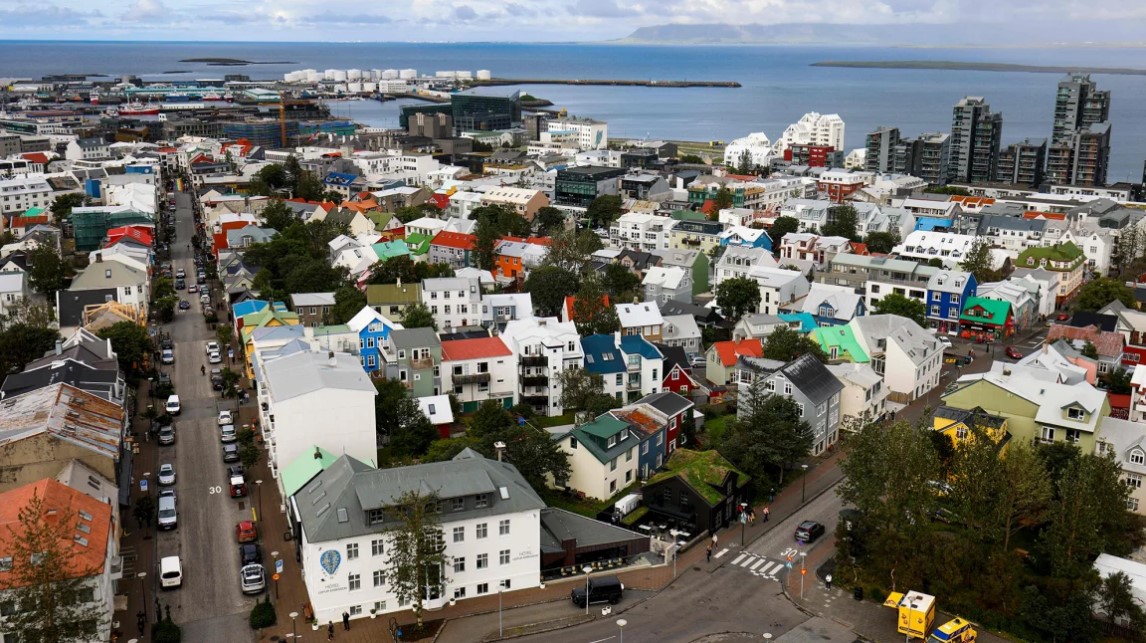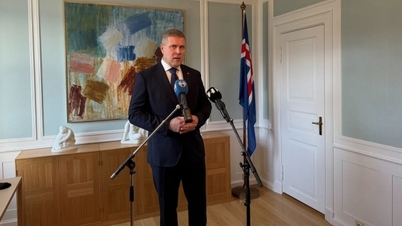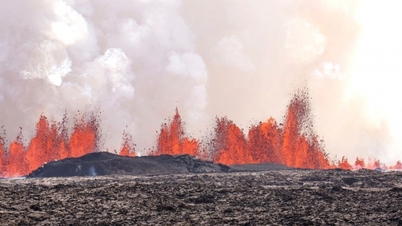(CLO) Implementing a shorter work week nationwide without cutting wages has helped Iceland's economy outperform most European countries, according to a newly published study.
Between 2020 and 2022, 51% of workers in the country agreed to work fewer hours, including a four-day workweek. The two research groups said that number could be higher now.
According to the Institute for Self-Reliance (UK) and Alda (Iceland), Iceland's economy has achieved more impressive growth than many other European countries over the past year. In addition, the country's unemployment rate is also one of the lowest.

Downtown Reykjavik, Iceland. Photo: Getty Images
"This is a surprising success story: not only was the reduction in working hours supported by workers, but it also contributed to boosting the Icelandic economy to achieve surprising results," said researcher Gudmundur D. Haraldsson.
In two large experiments between 2015 and 2019, public sector employees in Iceland worked 35-36 hours per week without pay cuts, whereas previously they typically worked 40 hours per week.
The trials, which involved 2,500 people, more than 1% of Iceland's working population at the time, aimed to maintain or increase productivity while improving work-life balance. Researchers found that productivity in most workplaces remained the same or improved, while workers' physical and mental health increased "significantly."
The decision to reduce working hours has been widely applied in Iceland after successful negotiations between unions.
According to the International Monetary Fund's latest World Economic Outlook report, Iceland's economy is set to grow by a robust 5% by 2023, second only to Malta in the eurozone. This is much higher than the average growth of nearly 2% between 2006 and 2015.
However, the IMF forecasts that growth in Iceland will slow significantly this year and next.
A decline in domestic demand and tourism , two key growth drivers, is forecast to cause Iceland's tourism-dependent economy to slow down in 2024, according to a July assessment.
Iceland's low unemployment rate is "a strong indicator of economic vitality," said the Institute for Autonomy and Alda.
According to the IMF's World Economic Outlook, Iceland's unemployment rate was 3.4% last year, just half the average for advanced European economies. The IMF expects the rate to rise slightly to 3.8% this year and next.
There have been several trials of the four-day workweek around the world. Including a successful trial in 2022 at 33 companies, mostly based in the US and Ireland.
Ha Trang (according to CNN)
Source: https://www.congluan.vn/iceland-thu-nghiem-tuan-lam-viec-4-ngay-ket-qua-nhu-the-nao-post318622.html


![[Photo] Readers line up to visit the photo exhibition and receive a special publication commemorating the 135th birthday of President Ho Chi Minh at Nhan Dan Newspaper](https://vphoto.vietnam.vn/thumb/1200x675/vietnam/resource/IMAGE/2025/5/17/85b3197fc6bd43e6a9ee4db15101005b)
![[Photo] More than 17,000 candidates participate in the 2025 SPT Competency Assessment Test of Hanoi National University of Education](https://vphoto.vietnam.vn/thumb/1200x675/vietnam/resource/IMAGE/2025/5/17/e538d9a1636c407cbb211b314e6303fd)

![[Photo] Prime Minister Pham Minh Chinh chairs meeting on science and technology development](https://vphoto.vietnam.vn/thumb/1200x675/vietnam/resource/IMAGE/2025/5/17/ae80dd74c384439789b12013c738a045)






























![[Photo] Nearly 3,000 students moved by stories about soldiers](https://vphoto.vietnam.vn/thumb/1200x675/vietnam/resource/IMAGE/2025/5/17/21da57c8241e42438b423eaa37215e0e)







































































Comment (0)